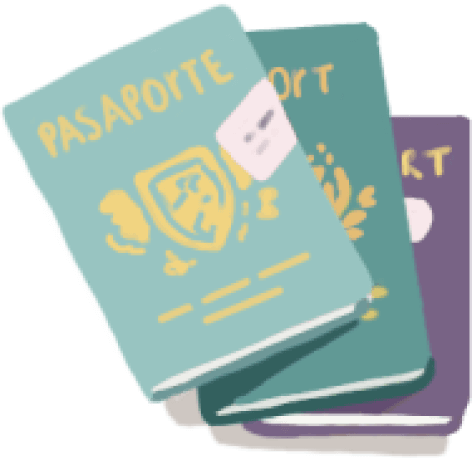A student loan deal for DACA recipients
Free for you -
How?
Takes <1 minute to join -
Why?
No credit check -
Why?
No co-signer required
Join for free to see your options.

Benefits of joining Juno

No Co-signer Needed
There’s no requirement for a co-signer, collateral, or credit history.

Free to access
Joining Juno is free – you’ll never pay any membership dues or fees for accessing our exclusive deals. How? We make lenders pay a fee instead.
Our Journey
Started by two Harvard students...
We started Juno a few years ago when we were shopping around for loans for Harvard Business School. Since then, we’ve been immersed in the student loan industry, regularly speaking with key players nationwide.
Doing the research
This year, we ran an auction, making all lenders offer the best rates to our community. In the process, we pored over dozens of rate tables, and stayed up all night crunching spreadsheets to map out which lenders offered the most people the best rates.
Free for you
Since our members never pay us, we charge the selected lender a set fee that is agreed before the negotiations begin. That way, we can’t be swayed by a larger financial incentive. The only way to win the auction is to offer our community the best rate.
Proven Track Record
Juno is the only organization that has successfully negotiated discounts for student loans on behalf of large, diverse groups of students. We’ve helped students and families borrow more than $1B+ at discounted rates. Over 210,717+ members have trusted Juno to negotiate more affordable student loans for them.
By the numbers
210,717+
Members
$1B+
In negotiated loans
1985+
Eligible universities
How we save you money

Through the power of 210,717+ families
Our collective voices hold so much strength at the negotiating table. Thanks to this, whenever we talk to lenders, we have a ton of leverage to get our community better deals.
Lenders want our collective business
Financial institutions want to lend money. More volume, even if the volume is getting a better deal, is better for them. And better rates is better for you. It’s a rare win win.
Who is this for?
If you’re an undergraduate or graduate student, you can apply! Our partner accepts international students, DACA recipients, U.S. citizens, refugees or asylum-seekers. You must be admitted to or attending an accredited Title IV school.


Do I need a co-signer? What does that mean?
For this deal, you don’t need a co-signer, collateral or a credit history. However, we do expect students with co-signers to be able to get better rates. If you have a co-signer, sign up for Juno to see all your options.
A co-signer is a person who is obligated to pay back the loan if you, the student, cannot make your payments. The co-signer can be a spouse, relative, parent or any adult that is a U.S. Citizen or Permanent Resident.
For international students as well as DACA recipients and Conditional Permanent Residents, having a U.S. Citizen/Permanent Resident co-signer may make you eligible for a loan with a better interest rate. Policies and requirements vary by lender.
How does this compare to my other options?
DACA students with a social security number are still able to apply to FAFSA, from which they will receive a Student Aid Report outlining their eligibility for non-federal financial aid. Before you make that your first step, the Department of Education recommends you check in with your high school counselor or college financial aid office before submitting FAFSA, as you might live in a state with an alternative aid application specifically for DACA recipients.s
It’s also important to learn about your state’s financial aid program, or the aid program of the state you hope to go to school in. Financial aid eligibility varies between states, so check out the National Association of Student Financial Aid Administrators to see what grants, programs, and aid options are specifically available in the state you live or get educated in.
You can read more about your options here in our full guide to DACA.










